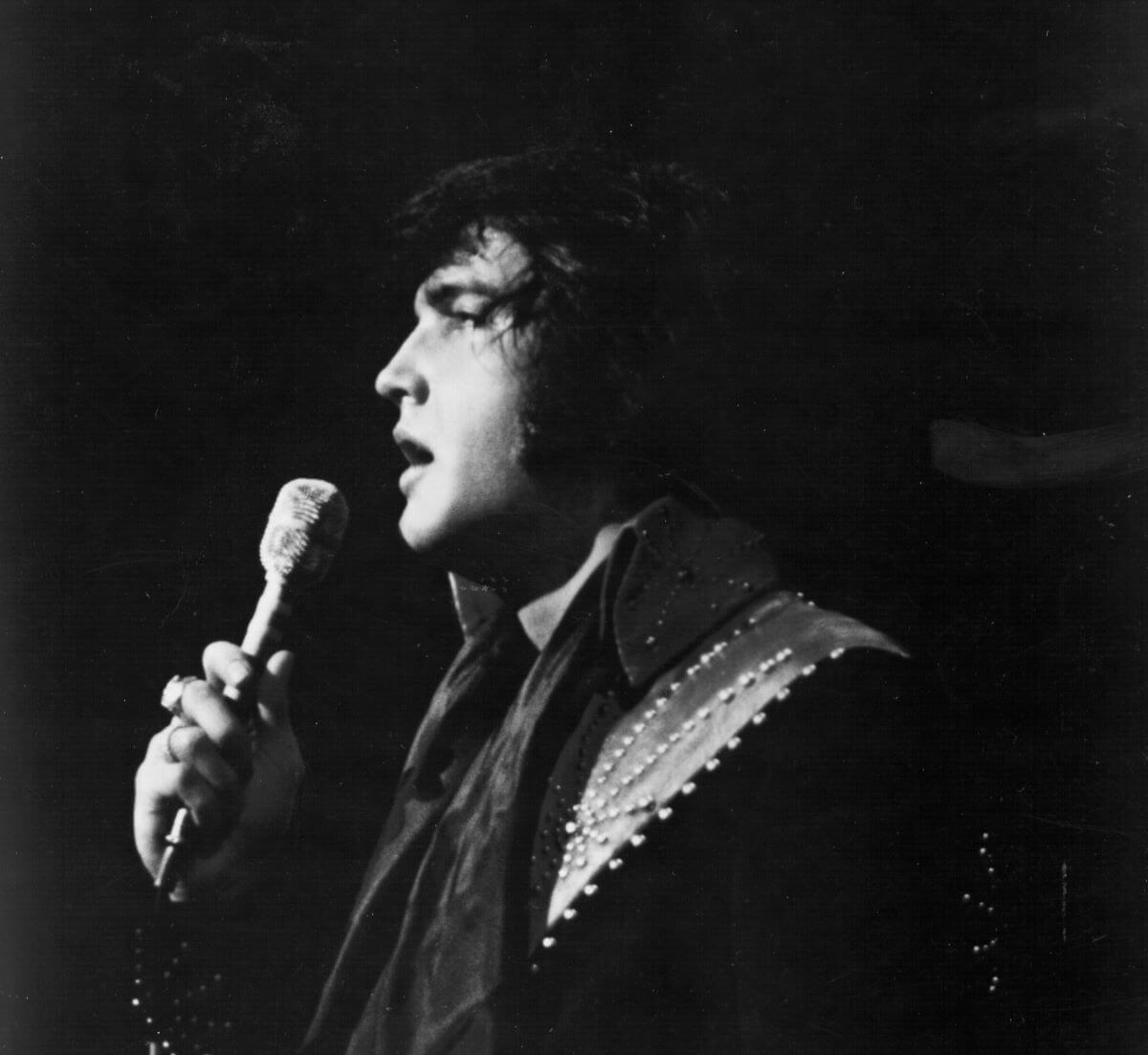
Elvis Fled Denver After Police Confronted Him About His Drug Use: ‘He Was a Complete Embarrassment to Them’
For much of Elvis Presley’s career, he relied on drugs to get him to sleep and keep him awake. He also liked befriending local law enforcement in the cities he visited on tours. These two habits became a problem for him in Denver. Police officers took note of his drug use and encouraged him to seek treatment for it. In response, Elvis fled the city.
Elvis left Denver after police officers spoke to him about his drug use
Elvis visited Denver many times on his tours and befriended several of the city’s detectives. He used his connections with them to seek out a prescription from a police doctor. This backfired on him.
“Anyway, in Denver he had this infection from an ingrown toenail,” former bodyguard Red West said in the book Elvis: What Happened? “Now the police doctor comes along, who is introduced by these two narc cops. Now the cops don’t know at this time anything about Elvis’s habit. But then Elvis asks for a heavy painkiller, and the police doc won’t give it to him. Then, the police doc shows this prescription that Elvis has to the undercover cops. Now the cops know that this is very, very heavy stuff. When the cops see this, they start to wonder.”

Though the police did nothing at the time, they spoke to Elvis when he returned to Denver several weeks later.
“It’s at this point these two undercover cops have a talk with Elvis about what they thought was going down,” former bodyguard Dave Hebler said. “Well, we hadn’t been in that hotel more than two hours when all of a sudden we’re leaving. Elvis tells us we have to go into Las Vegas and not to bother bringing our stuff.”
According to Hebler, the detectives wanted Elvis to go into treatment for his drug use.
“The reason he is leaving is that the police had talked to him about going into a sanitarium and drying out and that he was a complete embarrassment to them because they were narcotics officers and he’s stoned out of his mind,” Hebler said. “He’s stoned out of his mind and flaunting it right in front of them. You know, this is kicking them right in the chest.”
Elvis’ friends wished he had listened to the police about going into treatment for his drug use
Elvis became defensive in the face of this confrontation.
“It must be stressed that these guys told Elvis that no one would know; it would be handled right,” West said. “They would oversee this drying-out process personally. His answer was, ‘You think I’m hooked. You think I can’t handle it myself. I’m strong enough to take care of it. I’m strong enough to get off the stuff.'”
West and the other people in Elvis’ life agreed with the police officers. They weren’t sure how to talk to him about it, though.
“Now these cops had seen all these pills, and they knew he was taking all sorts of stuff that would screw him up,” West said. “They couldn’t live with themselves that Elvis was doing this to himself, because they liked him a lot. They felt the same way we felt about him. We just wanted to see him straight, that’s all. The greatest present that anyone could give me was to tell me that Elvis Presley is straight, slim and handsome and just the same as when I knew him way back. A lot of what went on was as much our fault as it was his because we would indulge him like a child.”
The musician wanted a federal narcotics badge
Though Elvis used drugs himself, he became obsessed with getting them off the streets. He believed that obtaining a federal narcotics badge would allow him to do this. It would also, he believed, enable him to legally carry drugs and weapons into any country.

Richard Nixon eventually gave him the badge, much to his delight. It did not allow him to do what he thought it did, though.
“[Elvis] believed he had some authority, which he did not have,” White House Secret Service Agent Clint Hill said, per People. “He had no power of arrest or any legal authority whatsoever. [But] he went away happy.”
How to get help: In the U.S., contact the Substance Abuse and Mental Health Services Administration helpline at 1-800-662-4357.


